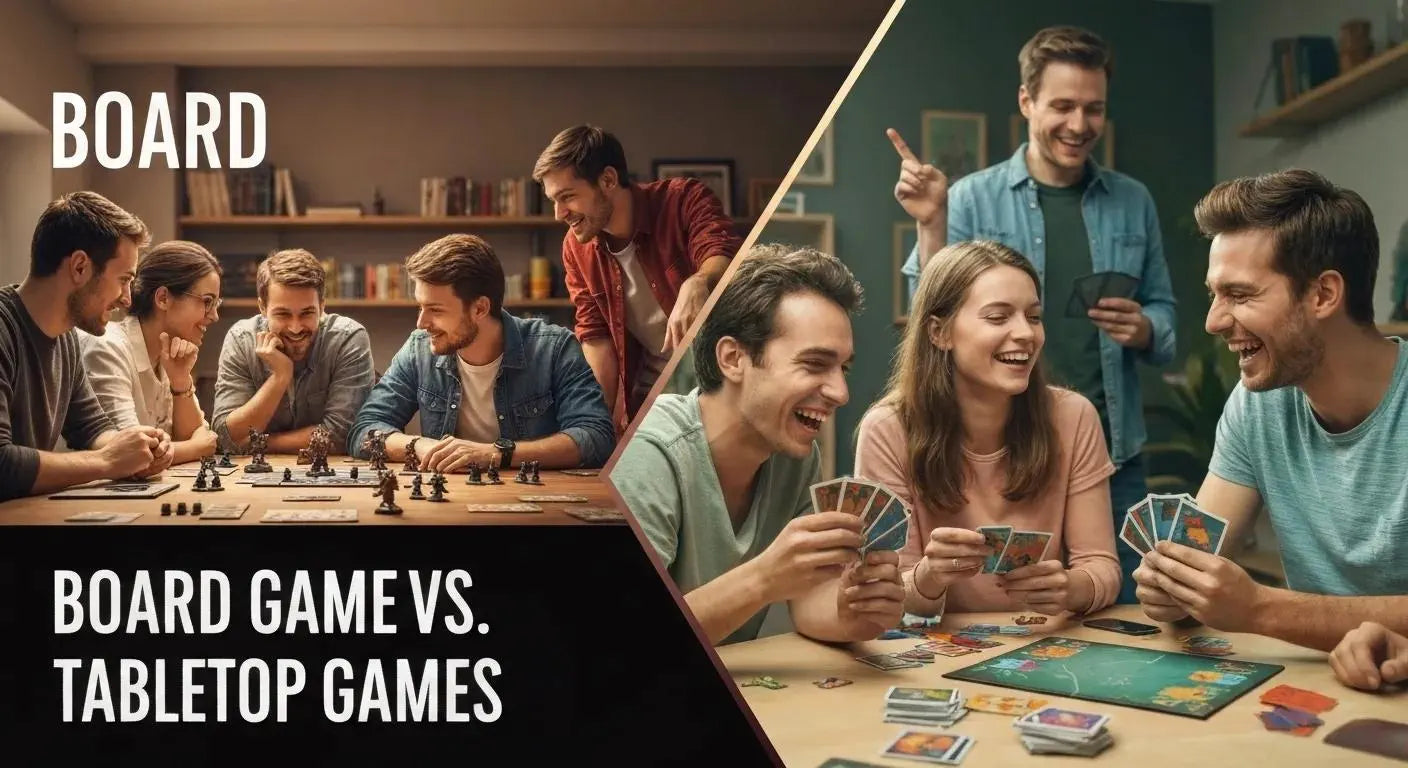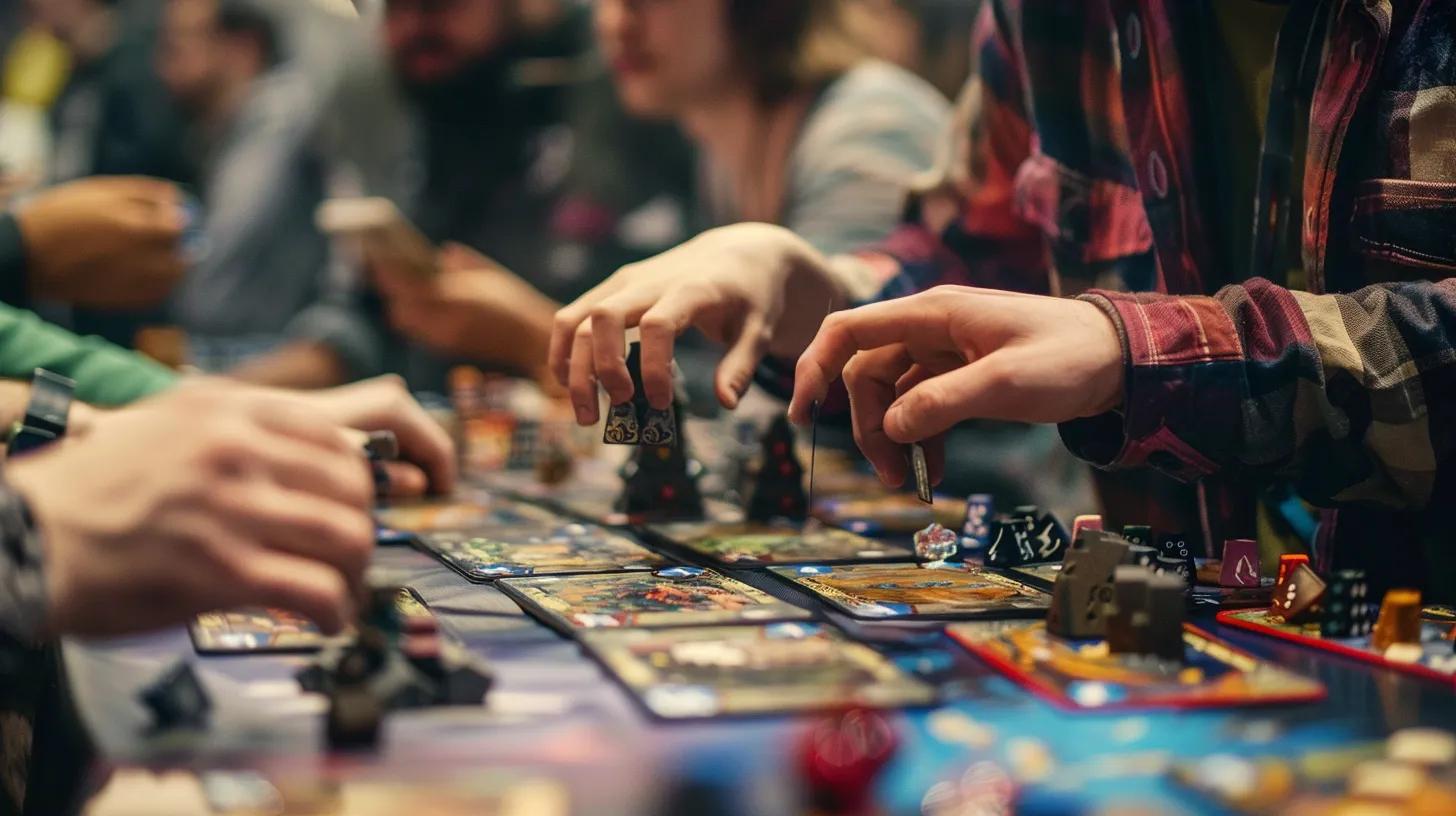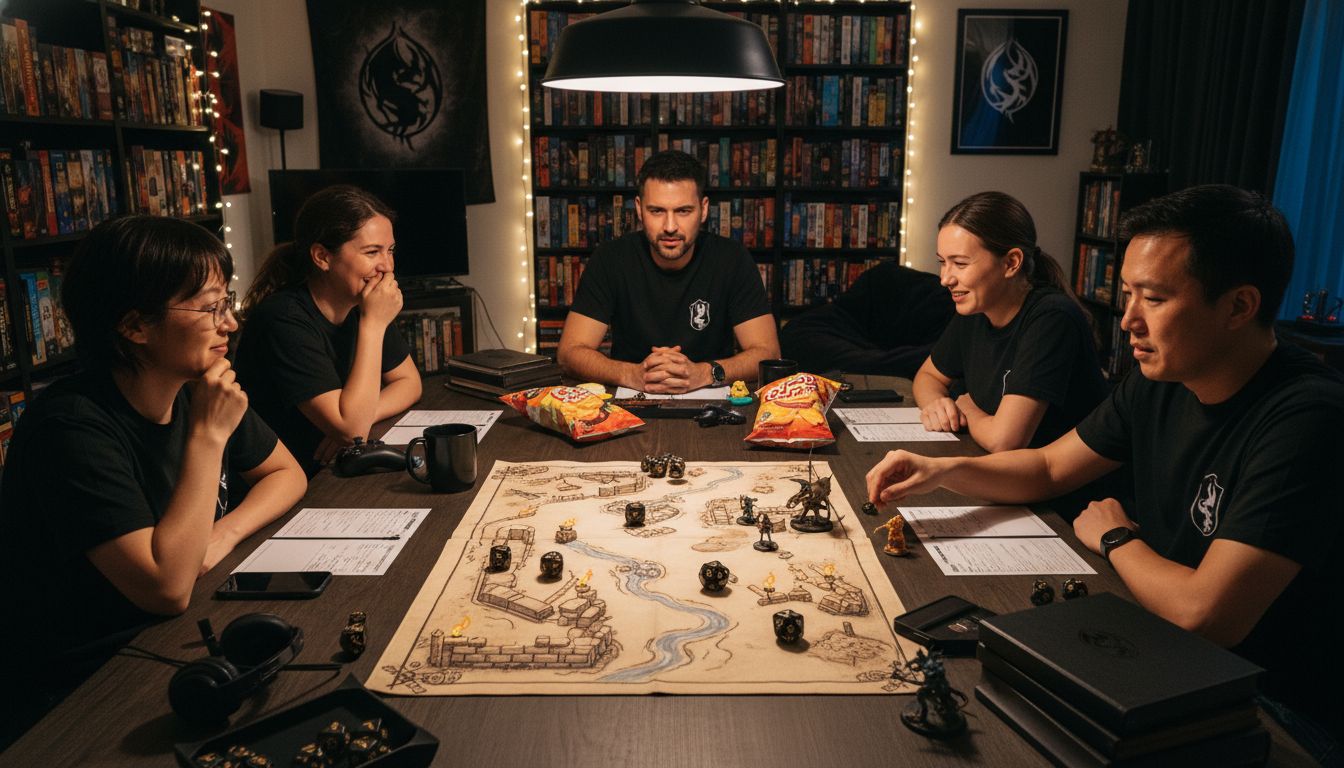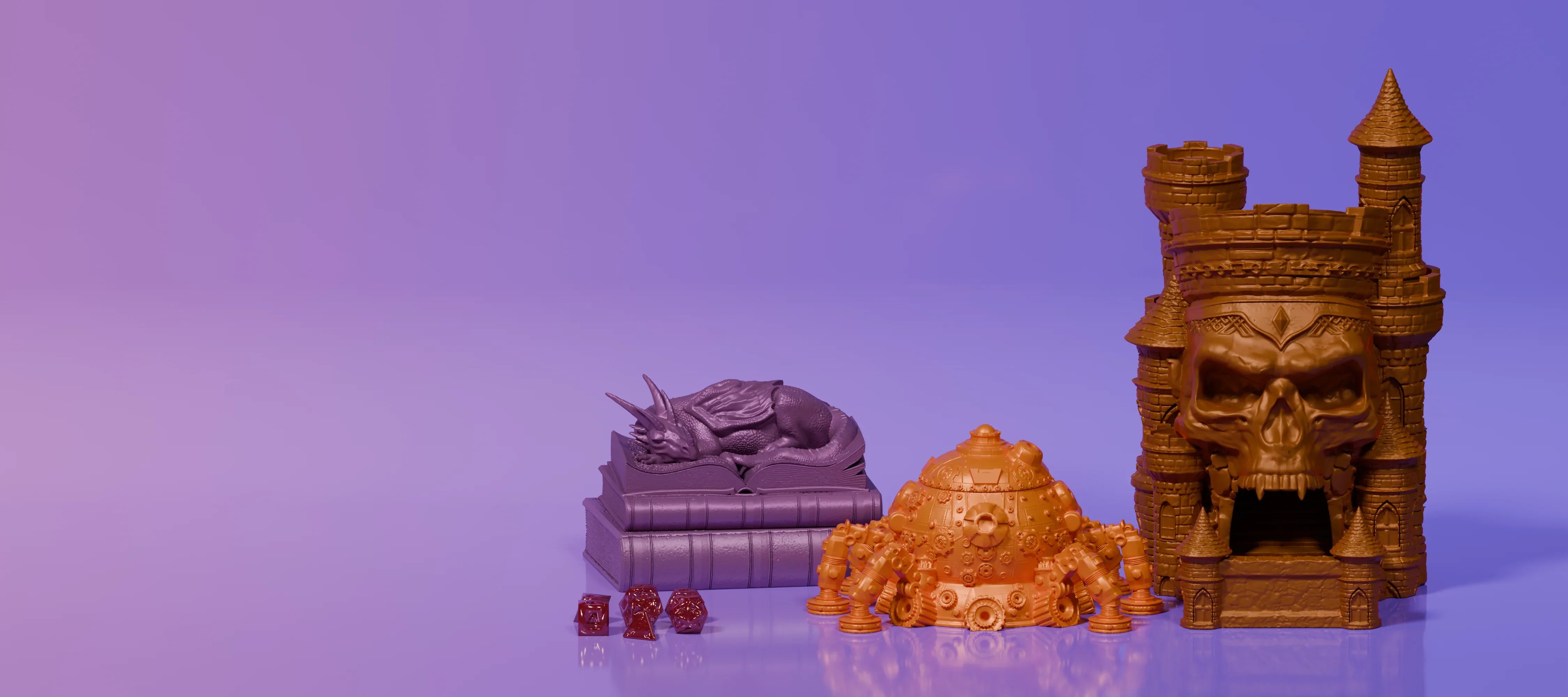
Board Games vs Tabletop Games: What’s the Real Difference?
The world of analog gaming is bigger than ever. From strategy-packed board games to sprawling, story-rich tabletop RPGs, the space is more alive (and more confusing) than ever. One question we hear often is: "Aren't board games and tabletop games basically the same thing?" Not quite. Whether new to the hobby or just looking to clarify what kind of gamer you are, this guide will help you understand the big differences between board games and tabletop games.
What are Tabletop Games?

Tabletop games Tabletop games encompass a wider range, including card games, dice games, miniatures, and story-driven TTRPGs like D&D. Here are the most common types:
- Card games: Played with cards that mix luck and strategy. Popular examples include Poker, Magic: The Gathering, and Uno.
- Dice games: Use dice to decide what happens in the game, which includes games like Yahtzee, Farkle, or custom RPG mechanics.
- Roleplaying games (TTRPGs): Like D&D or RPGs, where storytelling drives the action. You are creating characters, tracking lore, and building worlds, where tools like leather-bound journals and themed dice sets bring your story to life.
- Miniature wargames: Use small figures to battle on a tabletop map. Think Warhammer 40k or Frostgrave.
- Tile or token-based games: Players place tiles or tokens to make patterns or score points. These games use tiles, such as Carcassonne or Azul.
What makes tabletop games unique is that many are collaborative, open-ended, and designed to prioritize player agency over rigid rules.
What Are Board Games?
Board games are a type of tabletop game, but not all tabletop games are board games. Board games use structured boards, clear win conditions, and predefined rules.
Examples include:
- Classic games: Monopoly, Risk, Clue
- Modern strategy games: Settlers of Catan, Wingspan, Root
- Party games: Codenames, Ticket to Ride, Pandemic
Board games are typically more structured and competitive.
Tired of dice flying everywhere? Our dice towers keep every roll fair and on the table, so you can focus on the game.
Grey Areas: Where the Lines Blur
Some games straddle both worlds. Gloomhaven, for example, is technically a board game but has RPG-like campaign progression. Others like Mice and Mystics or Descent feature storytelling and miniatures, yet still follow board game mechanics. And let’s not forget digital tabletop simulators. Whether you’re using Roll20 or playing TTRPGs on Zoom, the experience is still very much tabletop, just translated to screens.
The World of Tabletop RPG

For Tabletop RPG, it's more than mechanics; it's identity. When buying a game or planning a game night, understanding the difference helps you make more informed choices.
Tabletop RPGs prioritize:
- Player-driven narrative
- Flexible rules
- Character development over competition
To improve the storytelling and RPG gaming experience, players often utilize tools such as leather-bound journals, personalized dice sets, and character tomes.
Board Game or Tabletop RPG? Choose the Adventure That Fits You

Ultimately, there's no "better" choice, just different types of fun.
Choose board games if you want:
- Quick-to-learn play featuring clear rules
- Competitive or casual sessions
Choose tabletop RPGs if you crave:
- Engaging stories and adventures
- Character creation and progression
- Freedom to build, explore, and become
Create unforgettable stories with our tabletop RPG collections, and bring your campaigns to life today!
It’s All About the Table
Whether you’re stacking meeples or slaying goblins, it all happens in the same sacred place: the table.
What you bring to the table, whether it is a story, some clever strategy, or a trusty scroll, shapes your experience. At Fabletop, we think your tools should feel just as rich as the worlds you play in.
So the next time you roll initiative or place a tile, remember: it’s not just about playing the game. It’s about living it, where every move counts and every session tells a story.
Frequently Asked Questions
Can you play tabletop games without a board?
Yes, tabletop games encompass a wide variety of formats, many of which do not require a physical board. For instance, card games like Poker or Magic: The Gathering rely solely on cards, while roleplaying games like Dungeons & Dragons often use character sheets and dice instead of a board.
What are some popular tabletop RPGs besides Dungeons & Dragons?
In addition to Dungeons & Dragons, numerous popular tabletop RPGs cater to different themes and play styles. Some notable examples include Pathfinder, which offers a more complex ruleset; Call of Cthulhu, renowned for its horror elements; and Shadowrun, which combines elements of cyberpunk and fantasy. Each RPG offers unique mechanics and storytelling opportunities, enabling players to explore diverse genres and narratives.
How do I choose between a board game and a tabletop RPG for my game night?
Choosing between a board game and a tabletop RPG depends on your group's preferences and the type of experience you want. If your group enjoys structured gameplay with clear objectives and competitive elements, a board game may be the ideal choice. Conversely, if you prefer storytelling, character development, and collaborative play, a tabletop RPG would be a better fit. Consider the time commitment and complexity of the game as well, as RPGs often require more preparation and longer sessions.
Are there any digital versions of tabletop games?
Yes, many tabletop games have digital adaptations that allow players to enjoy them online. Platforms like Roll20 and Tabletop Simulator enable users to play traditional board games and RPGs virtually, providing tools for character sheets, dice rolling, and map creation. These digital versions can be a great way to connect with friends who are far away or to play when in-person gatherings aren't possible.
What materials are typically used in tabletop RPGs?
Tabletop RPGs often utilize a variety of materials to enhance gameplay. Standard items include character sheets for tracking player stats, dice of various types for determining outcomes, and maps or miniatures to visualize the game world. Additionally, many players use journals to document their adventures, track character development, and record essential story elements. These materials help make the tabletop RPG feel more realistic.
How can I improve my tabletop gaming experience?
To improve your tabletop gaming experience, consider investing in high-quality materials, such as themed dice, character journals, and custom game accessories. Creating a comfortable and inviting gaming environment can also pull players into the story; consider factors such as lighting, seating, and snacks.



